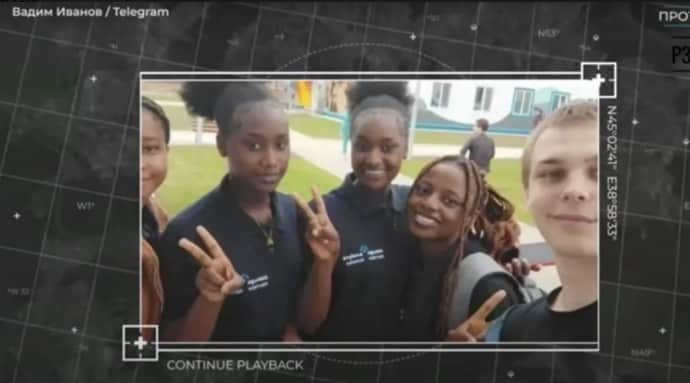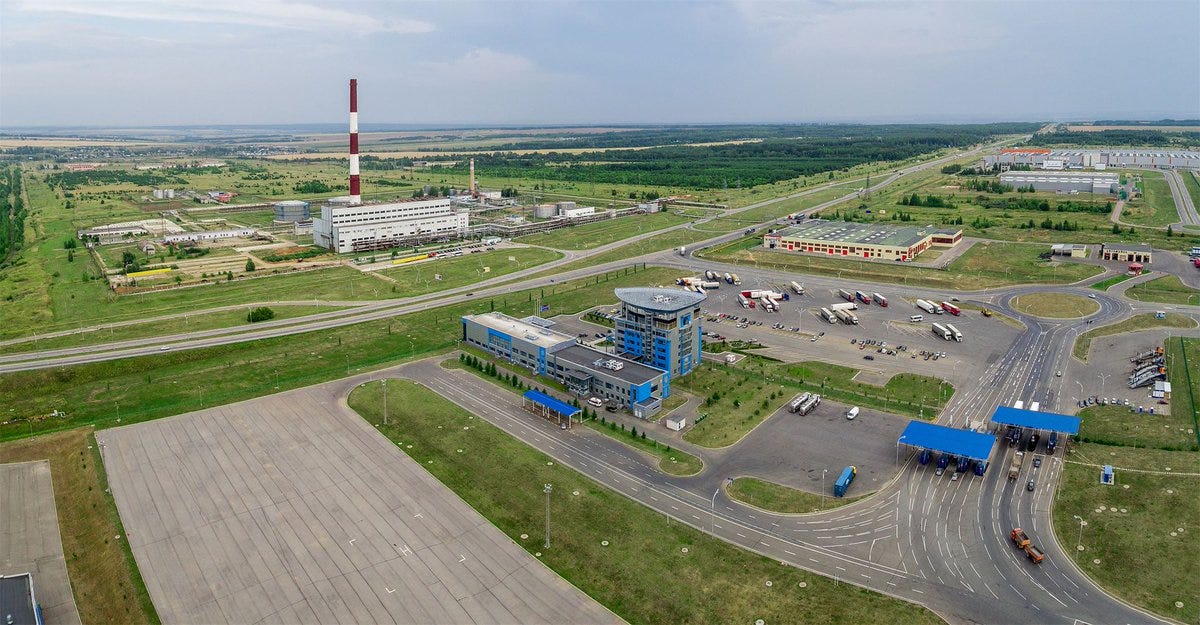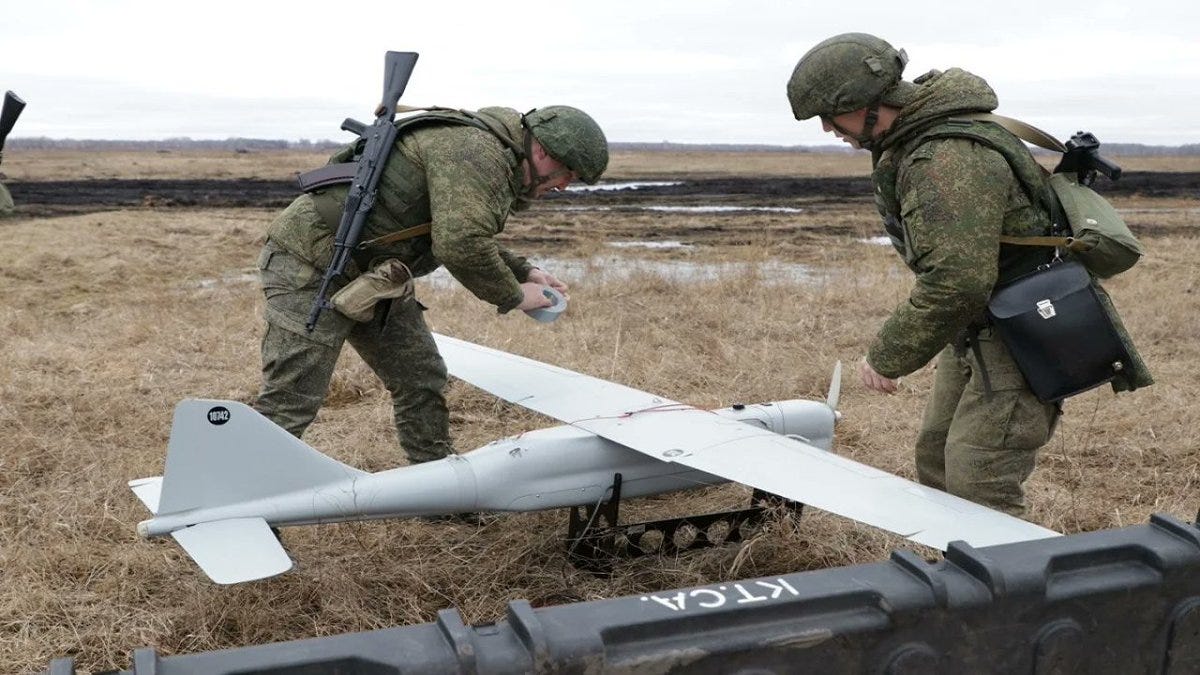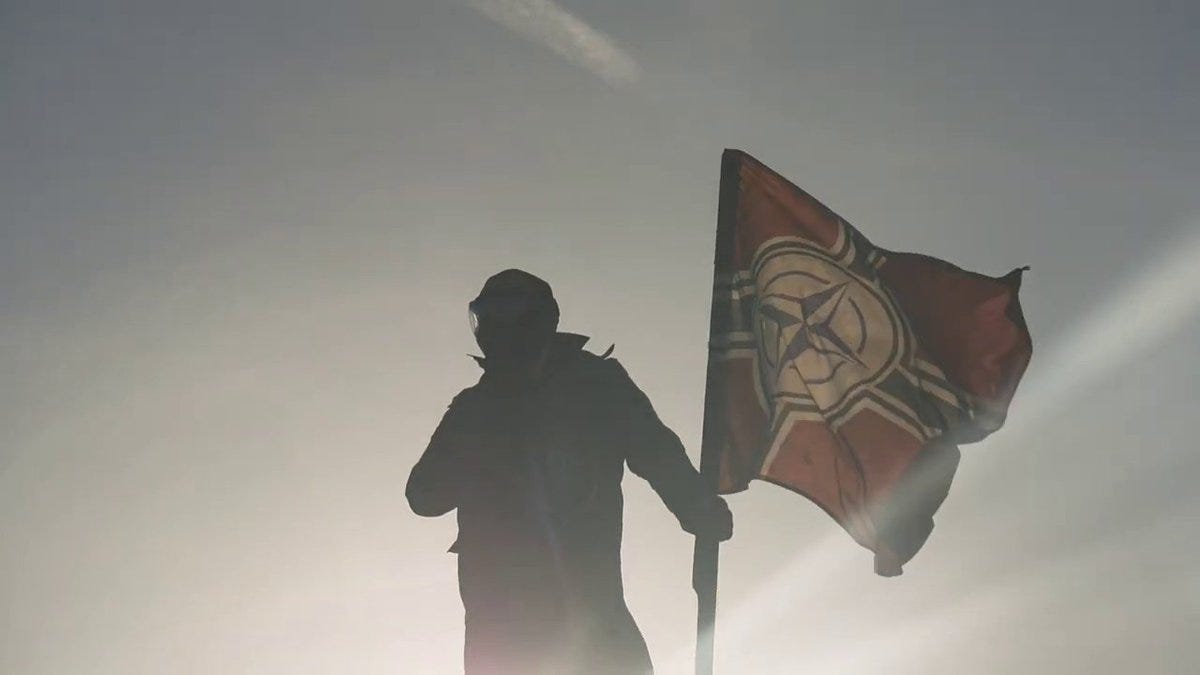Jul 30: Inside the Shaded kamikaze drone factory in Alabuga
Under-age students lured into a 'study-work' programme in Alabuga, Tatarstan
Inside the Shahed kamikaze drone factory in Alabuga
The article is composed from information presented in writings by ChrisO_Wiki, Ukrainska Pravda, and Protokol, published on July 24, 2023
Several hundred students of Alabuga Polytechnic College in the Republic of Tatarstan work in the assembly of Iranian Shahed drones.
According to sources, initially the assembly work and other duties involved mainly teenagers of 15-17 years of age. Now, students of all ages are lured to Alabuga Polytech and work on the assembly of drones. They are ordered not to talk to anyone about what they do or face fines or explusion. In addition, under-age female students from African countries are also exploited in the production of the Iranian drones. They were recruited into the Polytech via dating apps Tinder and Badoo.
At first, Russia imported the Iranian drones, but a recent report reveals that Iranian-designed Shahed kamikaze drones are now likely being produced in Russia. The independent Russian news outlets Protocol and RZVRT have already reported they were being assembled in Tatarstan.
Alabuga is located in a free economic zone—income tax of two percent instead of twenty, no tax on property, land and transport.. The official opening ceremony was attended by Minister Elvira Nabiullina, head of the Federal Agency for Management of Special Economic Zones Mikhail Mishustin, and Deputy Industry Minister Denis Manturov, reports Protocol. In 2015, the Financial Times hailed Alabuga as the best special economic zone in Europe. In 2016, 74% of foreign direct investment in Tatarstan came from Alabuga.
Russia’s full-scale invasion of Ukraine in February 2022 changed everything. Russia was hit with economic sanctions, and foreign companies wanted nothing to do with the risk to their businesses. The German manufacturer of Kuka Robots and Ford Motor Company are two examples of foreign companies that packed up and left. For a short time, Chinese trucks were manufactured at the former Ford Soller plant.
Alabuga also began having personnel issues when the Russian authorities asked for men to be sent to the front on Ukraine. For a short while, Alabuga paid for soldiers to go to the front in lieu of their specialised workers, but it wasn’t a long-term solution.
It looked like Alabuga’s future was at risk.
To make up for the lost business, Alabuga's management turned to military contracts including the manufacture of Russian-designed drones including the Orlan. Alabuga was subsequently chosen as the site for the manufacture of the Iranian Shahed, and the Alabuga Polytech was brought into its production.
For now, the factory is as large as six football fields, or 40,000 square metres. It's expected that the Shahed production facility will more than double in size to 100,000 square metres, making it a large village. To deliver this level of production, Alabuga turned to the students of the Alabuga Polytechnic College which is part of the complex.
The Alabuga Polytech educational centre was opened in April 2021 as a place which would "grow Elon Musks" for Russia – where brilliant teenagers would study engineering and technology, and put their skills to work in a state-of-the-art production facility. The head of Tatarstan Rustam Minnikhanov personally opened AP.
The new building of Alabuga Polytech is 7.5 thousand square meters, which are equipped with high-tech laboratories for industrial robotics and mechatronics, industrial automation, electrical installation, laboratory stands and mechatronic stations from FESTO, - writes the press service of the Ministry of Education and Science , - educational robotic KUKA cells, high-voltage testing ground, laboratories with automated equipment for chemical laboratory analysis.
Today, the main page of the college boasts that Alabuga Polytech is “a place where they teach the professions of the future”. The advertising for AP says that tech-savvy students would be sought out by leaders in the future because everyone envies them. The students themselves would be paid up to 70,000 rubles a month already in their first year. Teenagers are actively invited to enroll in a "work-study program": this means that right from the first year it will be possible to study and work at the same time—so knowledge, a “world-class” salary and work experience.
It is important to note that recruitment for the Alabuga Polytech started just before Russia’s full-scale invasion of Ukraine through a PR network set up on YouTube. Bloggers and influencers with three to seven million subscribers were used to lure in young people.
A former student, ‘Nastya’, was duped by the advertising: “ The expectations were exactly those. What they show in the advertisement is that everything is very cool here. In reality, there are all sorts of jambs here after all . ”
Nastya was able to talk about her experience but two others could not. One student committed suicide at the school in April 2023, and another at his home in the fall 2022. The students work and live in difficult conditions. As Protokol describes it:
"Many students are busy studying or working from eight in the morning until late in the evening, and they simply do not have time to cook, wash clothes, do sports, or have a simple rest.”
"They have no opportunity to buy groceries - the shift bus to the nearest shop runs once a week. The rest of the time students have to eat in the canteen, but this is only if they are lucky enough to work in the main office building of Alabuga.
"The rest of them are content with vending machines, the assortment of which is limited to chocolate bars, chips, instant noodles, and sometimes canned food.
"The situation with medicine is no better: the nearest doctor, with the exception of a nurse at the college, is in the city, which can be reached only by appointment and only by taxi. The cost of a one-way trip starts from 400 rubles.
"One also has to go there to get medicines at the pharmacy. Students only find out about all this after they get there."
Students at the school do not obtain a degree—they attend lessons that do not confer any qualifications. The teaching staff is also said to be substandard, and students end up with a grade nine knowledge in their fields.
In October and September 2022, at the beginning of the school year, one of the prerequisites to continue attending lessons at the school was to ‘participate’ in a hunger-games style paintball ‘game’. Students had to get up at five in the morning and reconstruct the battles of the Great Patriotic War. "An interesting detail – the flag of the Nazis is similar to the flag of Nazi Germany, but instead of a swastika in a white circle is the symbol of the NATO bloc," the journalists note.
Participation was mandatory for the students. According to Alabuga's general director Sergey Alekseev (right), the aim was "to weed out the wimps and brats at the initial stage. They should drop out on their own." He says: "Students should suffer, they should be hurt."
Participation in school events is mandatory under an agreement the students signed: “For refusing to participate, they could be called to talk to the “HR”. And if they call for a conversation with the “HR”, then this is worse than death. It’s better to be shot ,” says one of the students under anonymity.
Losing teams were "executed" by being lined up against a wall and shot from close range with paintball guns, inflicting injuries and the painful bruises seen in the video below.
"The shooting was outside, at only a distance of maybe three metres," says Yulia, one of the students. But sometimes that wasn’t enough: other losing teams had to run around the campus in the rain late at night to "storm" the heights from where employees shoot at them. Sometimes the punishment for losing was digging trenches. Most students surprisingly cope under these conditions, but one student had a nervous breakdown.
"In general,” says Nastya of the execution, “it is very painful. Especially for those who have sensitive skin, bruises do not go away for a long time. For me, they didn't go away for a week. The captain himself said: "You played badly today. Let's shoot each of you in turn."
After the ‘games in September and October 2022, parents complained to the local prosecutor’s office, demanding information about the paintball wars and the digging of trenches. Incredibly, Alabuga’s spokesman, Vadim Ivanov, reported that the activities were helpful in team-building and critical thinking. As a result of the vetting process, 50 students were expelled from the school last year. The best first-year students became ‘sergeants’, the most talented seniors are ‘captains’, and ‘generals’ got positions as managers.
Since Alabuga turned itself over to producing Shaheds, several hundred students aged 15 to 17 have been put to work assembling them. They are no longer studying, their normal projects have been cancelled and all funding has been redirected towards Shahed production.
The students complain that some of them are receiving neither regular nor overtime pay. They are made to work without a break for several days without sleep and "virtually without food". Their parents are told to sign contracts consigning them to what amounts to "teenage slavery".
The contracts mandate huge and intentionally unaffordable financial penalties for disclosing information without permission or dropping out of the programme. Students describe an atmosphere of fear and intimidation in which their communications are monitored by Alabuga.
In April 2021, the facility also recruited students from African countries, focusing on girls as African boys are regarded as "too aggressive and dangerous." After the failure of an initial recruitment exercise, Alabuga turned to using Tinder and Badoo.
Existing students were employed to catfish African teenagers to come to Russia under the pretext of "studying together" at Alabuga. The prospective boyfriends disappeared when the first intake of girls arrived in the autumn of 2022.
The African students are still there and are segregated from the rest, living in their own separate buildings, and do the lowest-level work such as washing floors and removing garbage. According to a staffing table, students are categorised as "mulatto girls", "Tajiks" and "specialists".
"Mulattoes" – students from Uganda, Ethiopia, Nigeria, Tanzania and Pakistan – are used for the most basic work, "Tajiks" (apparently meaning central Asians in general) are the next level up and "specialists" are the Russian students, evidently seen as the elite.
The Russian students put up with the conditions and the humiliation for reasons described by Protocol and RZVRT as "conformism and a certain detachment from global problems: "I don't understand why all this is necessary, but if they say so, I'll do it. There are no fools sitting upstairs"."
For many students from relatively poor families, the monthly salaries of 30-40,000 rubles ($333-444) are attractive. They put up with their mistreatment as the money enables them to buy laptops, pay off loans, obtain the latest iPhones and even buy cars.
As Protocol puts it, "the primary factor here is not even access to material goods, but the feeling of getting out of poverty, pride, approval from parents and school friends."











